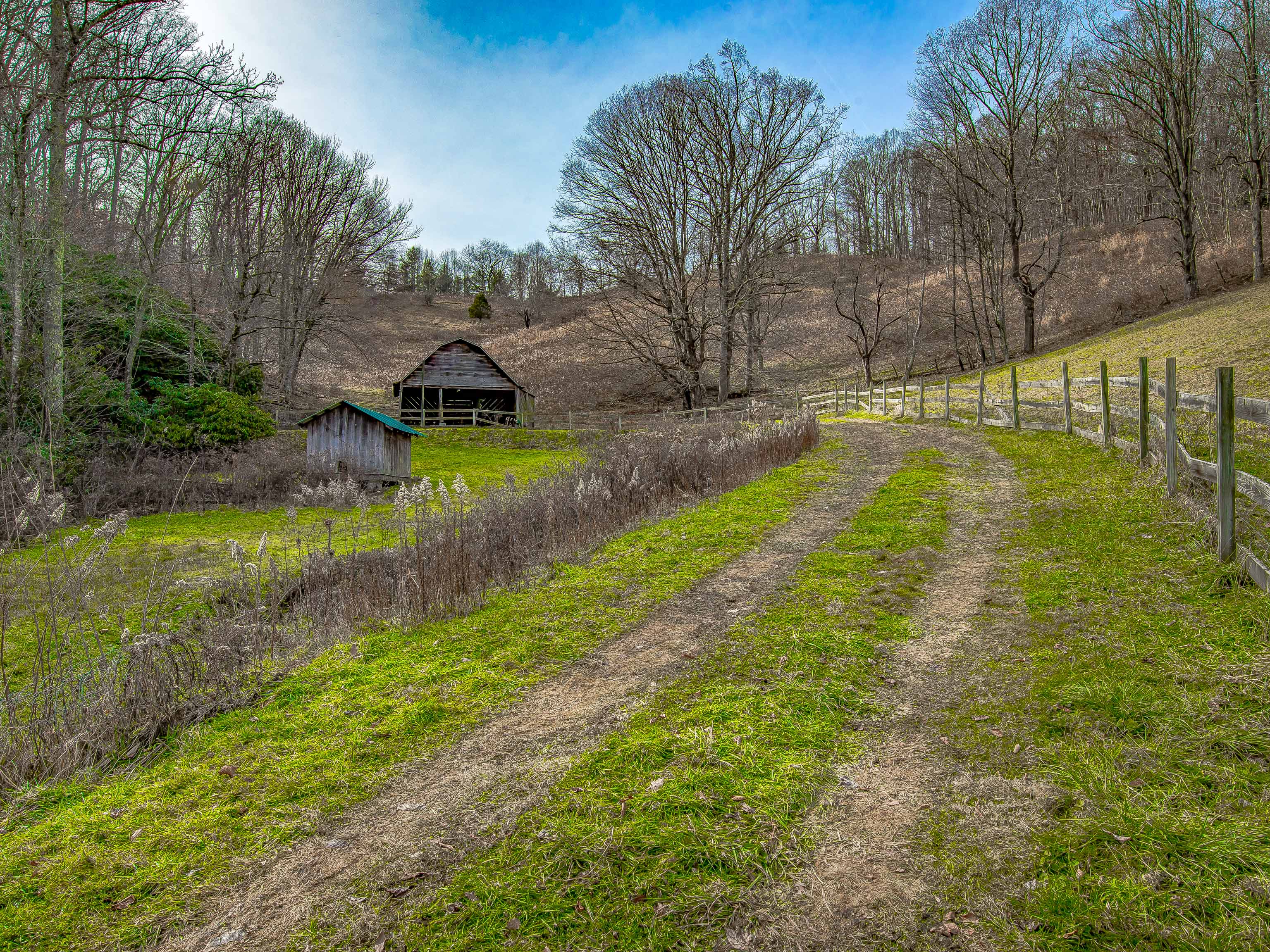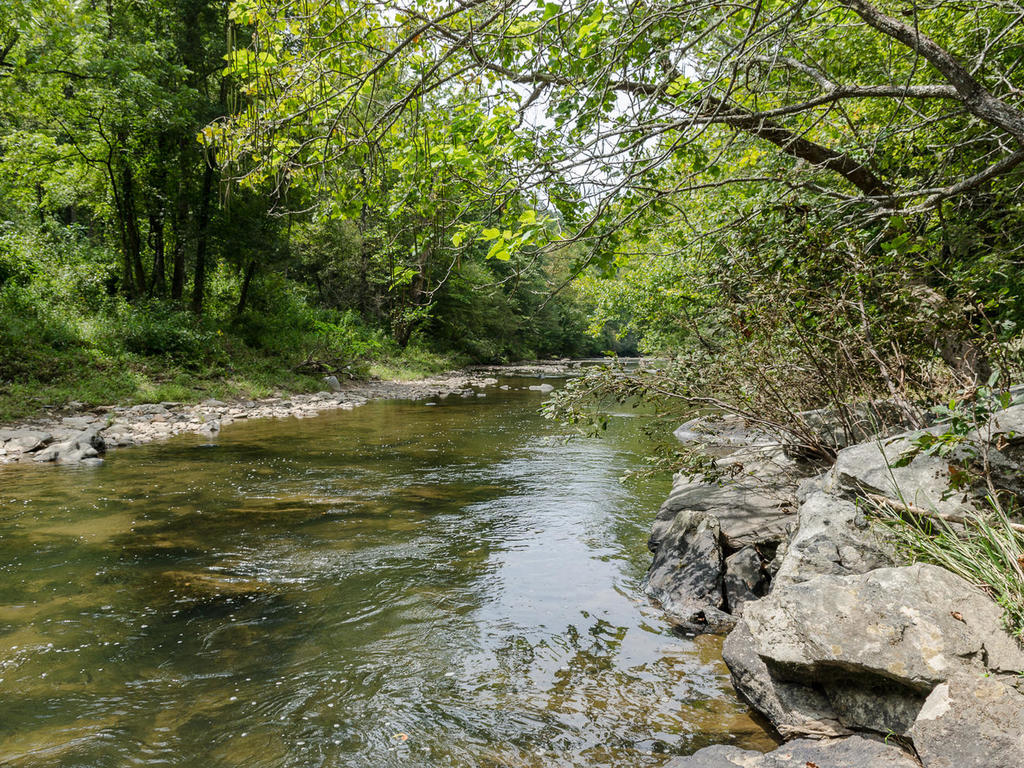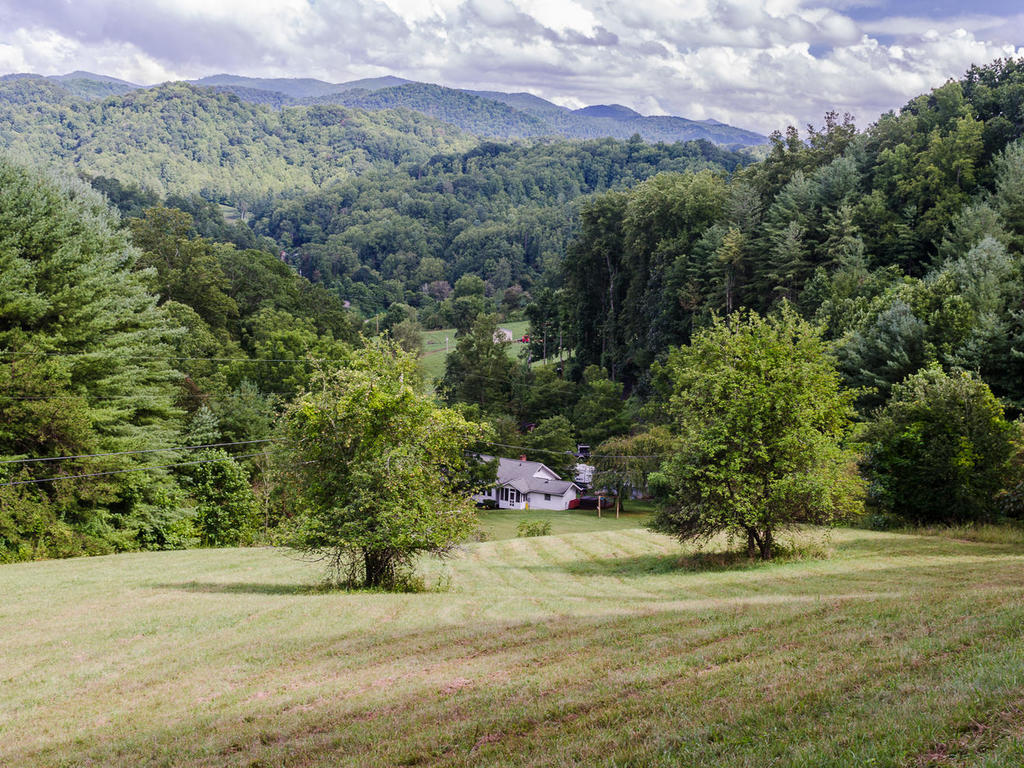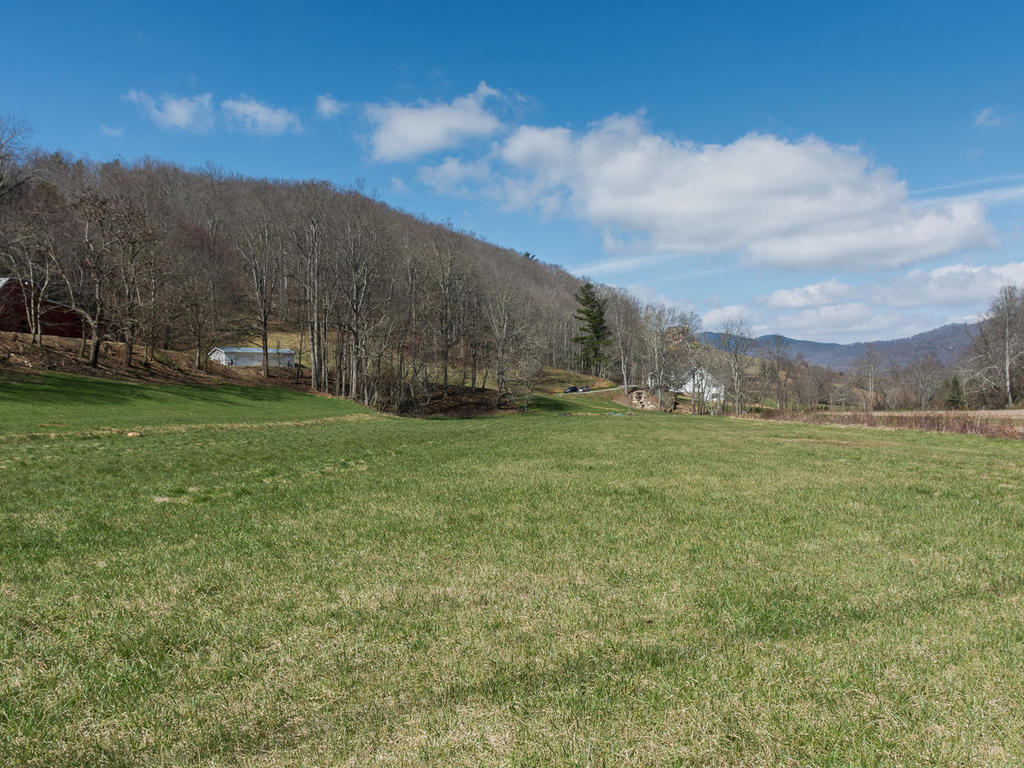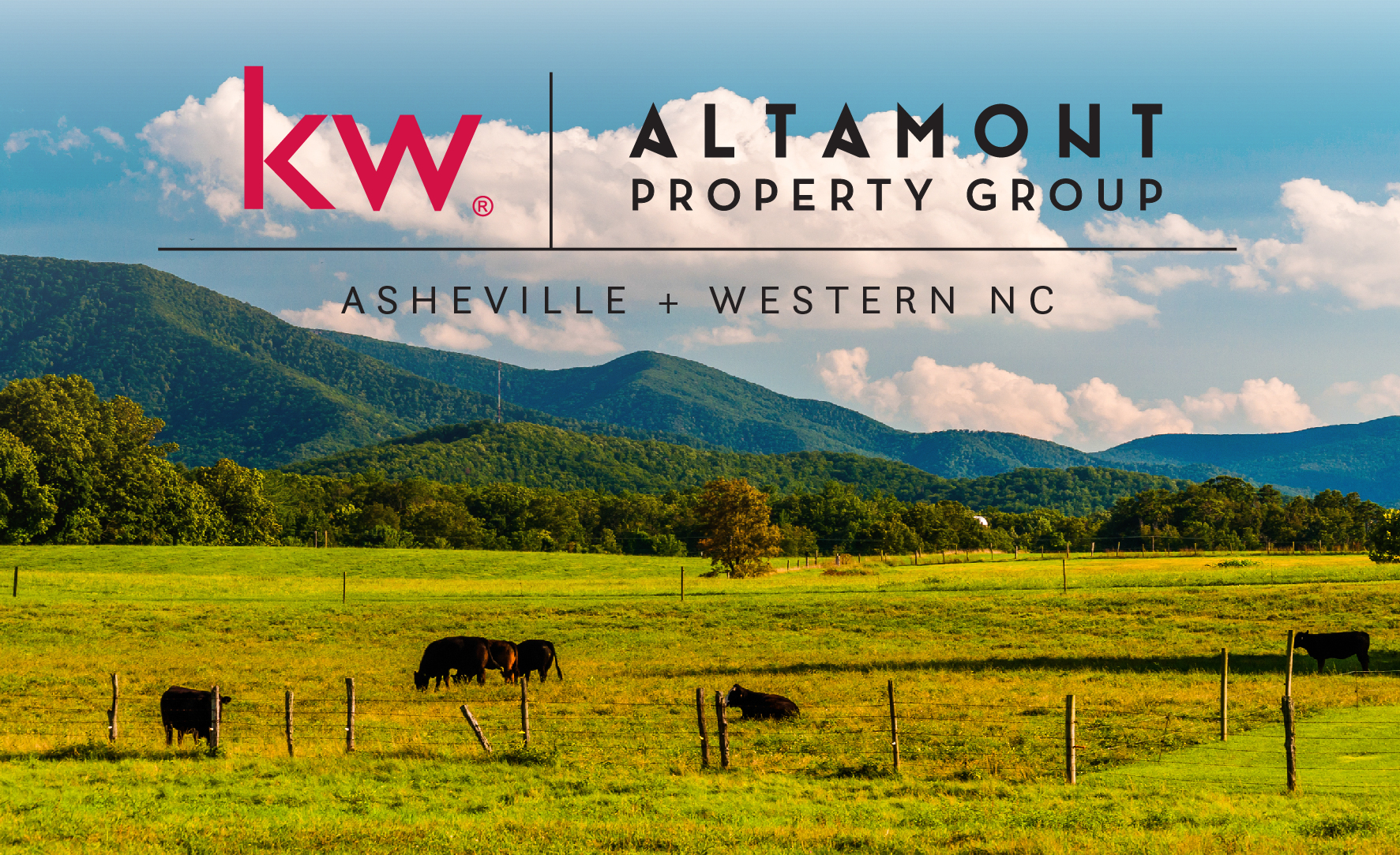BUYING & SELLING MOUNTAIN LAND
WHAT TO CONSIDER
Whether you are looking to buy or sell land tracts and acreage in Western North Carolina, gaining an understanding of many details is critical to success. For land buyers, verifying information about the property and asking the right questions allows for informed decisions to be made.
For sellers, compiling and presenting robust information generates more buyer interest and helps to facilitate smooth transactions.
Location | Highest and Best Use
Land values can differ drastically on account of many factors. Location typically comes first, as rural properties tend to not carry the same value as properties closer to towns and amenities. However, rural properties with superior site improvements, natural capital, or bordering protected lands may carry higher values. Surrounding properties and their uses can also influence the values of both rural and in-town land tracts.
The highest and best uses for the property come next, but a one-size-fits-all answer simply doesn’t exist. Land uses depend on individual needs and tend to vary greatly. Examples of ways land can be used include residential, equestrian, agriculture, specialty commercial, development and subdivision, cattle grazing and management, timberland, hunting and recreation, mineral harvesting, summer camps, conservation, hospitality, investment and land banking, luxury estates, and more. When it comes to marketing any property, identifying the highest and best uses helps to reach the right buyers in less time.
Natural Capital | Topography
Natural Capital is defined as the environmental stock or resources of Earth providing goods, flows, and ecological services required to support life. Every tract of land is unique and offers a different natural environment. Examples include vegetation and animal species, merchantable timber, age of forests, water presence and quality, pastureland, tillable acreage, soils, rainfall data, minerals, and viewsheds. Economic value exists in harvestable timber, minerals, and agricultural fields, while personal value exists in the natural setting of pristine mountain tracts, conservation and resource protection, and tax benefits.
Topography is defined as the study of land and water features in an area. Land in the Appalachian Mountains can be quite steep, where it’s common for tracts to be over a hundred acres, yet only offer a few acres of more gentle, usable space. We refer to this usable space “functional acreage.” Water presence is also an important topography factor to consider. It’s common to find springs and small creeks on mountain acreage, while river and lake frontage is less commonly found, especially for private settings away from roadways and other properties.
Utilities | Improvements
Improvements on land tracts can come in many forms, shapes, and sizes. Determining what improvements exist on the property, and what value they hold, helps sellers to set the optimal price. In addition, improvements help buyers to project long-term costs for their highest and best use. Examples include homes and dwellings, outbuildings, utilities, grading improvements, agricultural improvements (irrigation, amended farmlands), pasture and livestock improvements (fencing, cattle wells), hunting improvements, and more.
Additionally, gathering valid information about available utilities is crucial for property use and development. Utility examples include electricity, water (city water, well, private system), sewerage (city sewer, septic, private system), cable and internet, natural gas, and propane.
Zoning | Restrictions
It’s necessary to investigate all possible restrictions when considering the purchase of any property. While it’s common to find information on known restrictions advertised by the seller, it’s vital for buyers to verify information with the help of an attorney and other professionals. Examples of property restrictions include zoning restrictions from the city, county, or state, restrictions placed on the property from the current seller, deed restrictions from previous owners, covenants and bylaws from a community or planned unit development, and environmental restrictions from state and federal governments.
It’s far too common for buyers to complete purchases without verifying the restrictions, only to find out after the fact they can’t make their desired improvements or use the property as they wish. While restrictions are more predictable on building lots, thorough deed, zoning, and regulatory research is advisable for larger acreage tracts.
Legal | Surveys
Legal representation is very important for any party in a land and acreage real estate transaction. Aside from the conventional preparation of closing documents, attorneys work to verify access, title, and restriction details. Many tracts of mountain land have been passed down within families for generations, and many are sold through estates and family trusts. In some cases these deeds are handwritten and can be over a hundred years old. I have seen an old Haywood County deed where a boundary marker was defined as “the oak tree where Grandpa buried the coonhound.” This would be very difficult to locate today, and a survey would be advised! Marketable title to the property is verified by an attorney and a title insurance policy is always recommended.
Furthermore, verifying how access is provided to a property is imperative. Access can be obtained privately across the owned property, or through deeded right of way across a neighboring property. If deeded, the widths, improvement restrictions, use restrictions, and even timeframes can vary. An easement is the legal right to use someone else’s property without legally owning the property. Examples include appurtenant easements, prescriptive easements, and easements in gross.
Easements, rights-of-way, and deeds are also referenced by a surveyor when engaged to map a property. A survey is always recommended upon any property transfer, and in North Carolina this is the responsibility of the buyer unless negotiated otherwise. Surveys can range in detail, from boundary surveys showing property boundaries and improvements, to topographic surveys showing elevation data manually gathered by the survey team. For larger acreage tracts it can take weeks to survey the land, flag property boundaries, and create the plat for recording. Buyers should take this timeframe into account for their due diligence period, while sellers should certainly market if they have a recent survey on file for buyers to reference.
Tax Benefits | 1031 Tax Deferred Exchanges
Tax exemptions can offer valuable long-term savings for land owners. Examples include conservation incentives, forestry exemptions, agricultural exemptions, charitable incentives, scientific uses, renewable energy, environmental remediation incentives, and more.
Additionally, 1031 tax deferred exchanges are valuable tools for the use in buying and selling land tracts and acreage. A 1031 tax deferred exchange allows a property owner to sell an investment property and reinvest the proceeds into a replacement property while deferring any capital gains taxes. Land tracts offer appealing 1031 exchange options for buyers to use as personal getaways, conservation properties, development opportunities, and more. Any funds collected from the sale of a property and reinvested into another are required to be held by a certified intermediary to oversee and consummate the exchange.
![]()
Regardless of your plans—buying, selling, or investing in a piece of property—it is advisable to surround yourself with knowledgeable professionals to ensure the success of your transaction. Working with a knowledgeable land and acreage real estate broker, along with attorneys, surveyors, city or county representatives, contractors and graders, appraisers, tax professionals, environmental professionals, and other service providers help buyers and sellers to “connect the dots” and accomplish their real estate goals.
Curious to learn how you can succeed in the Western NC real estate market? Whether you are looking into buying or selling land tracts, residential real estate, commercial properties, or investment properties, Collin O’Berry and the Altamont Property Group are glad to offer expert guidance to help you succeed in your real estate goals! We can be contacted at 828-782-5582 ext. 1 or altamontpropertygroup@gmail.com.
This article was authored for Capital at Play Magazine, a Western NC publication for business and investment news. Here is a link to the original article from September 2017.
